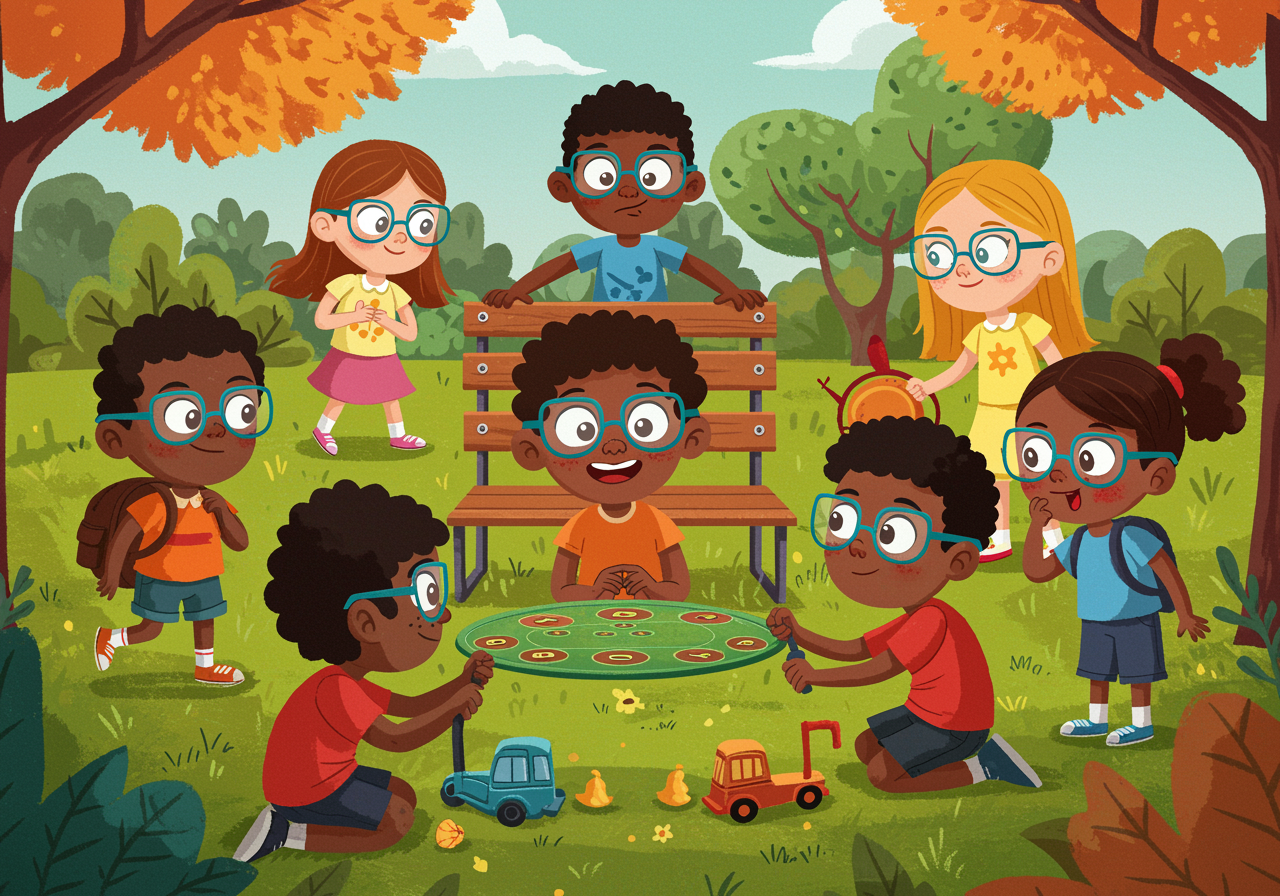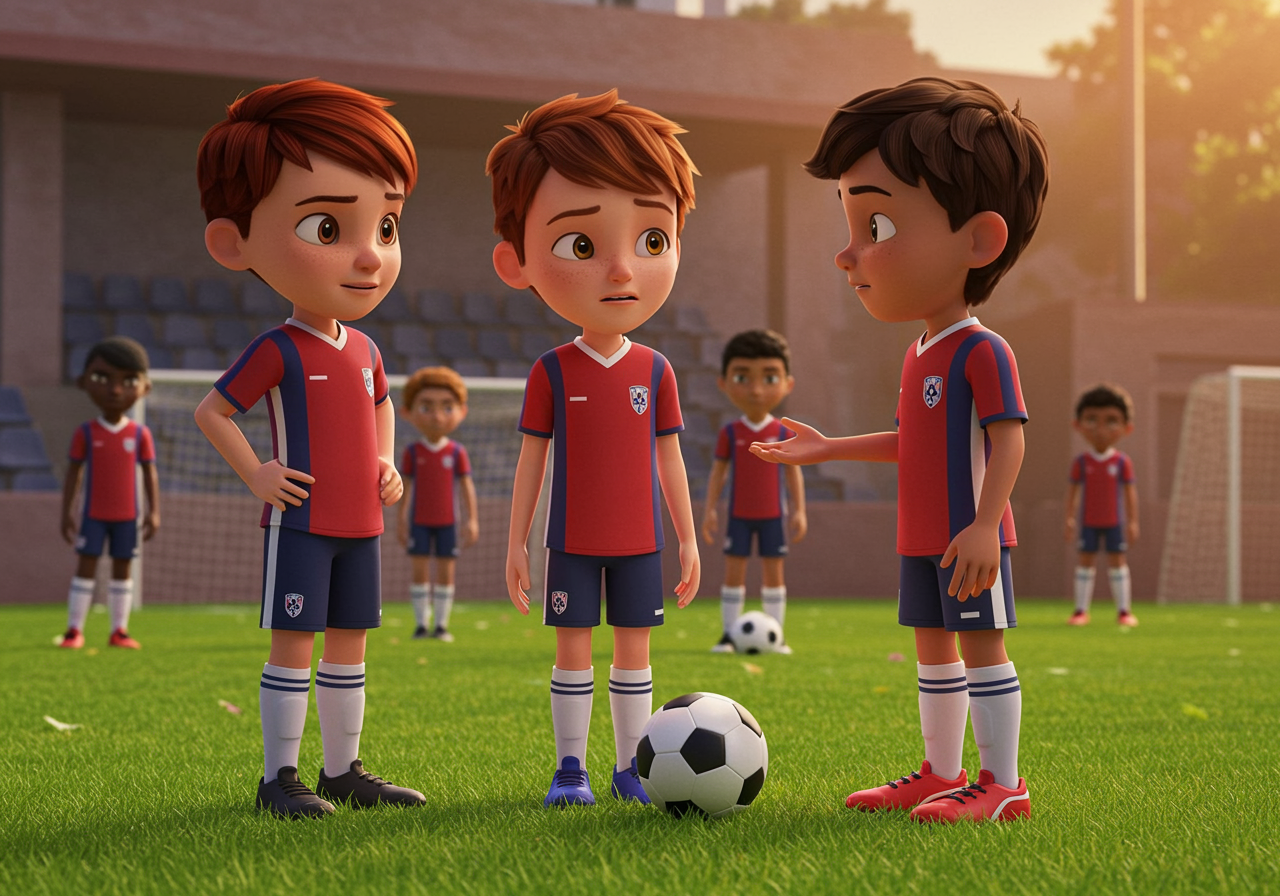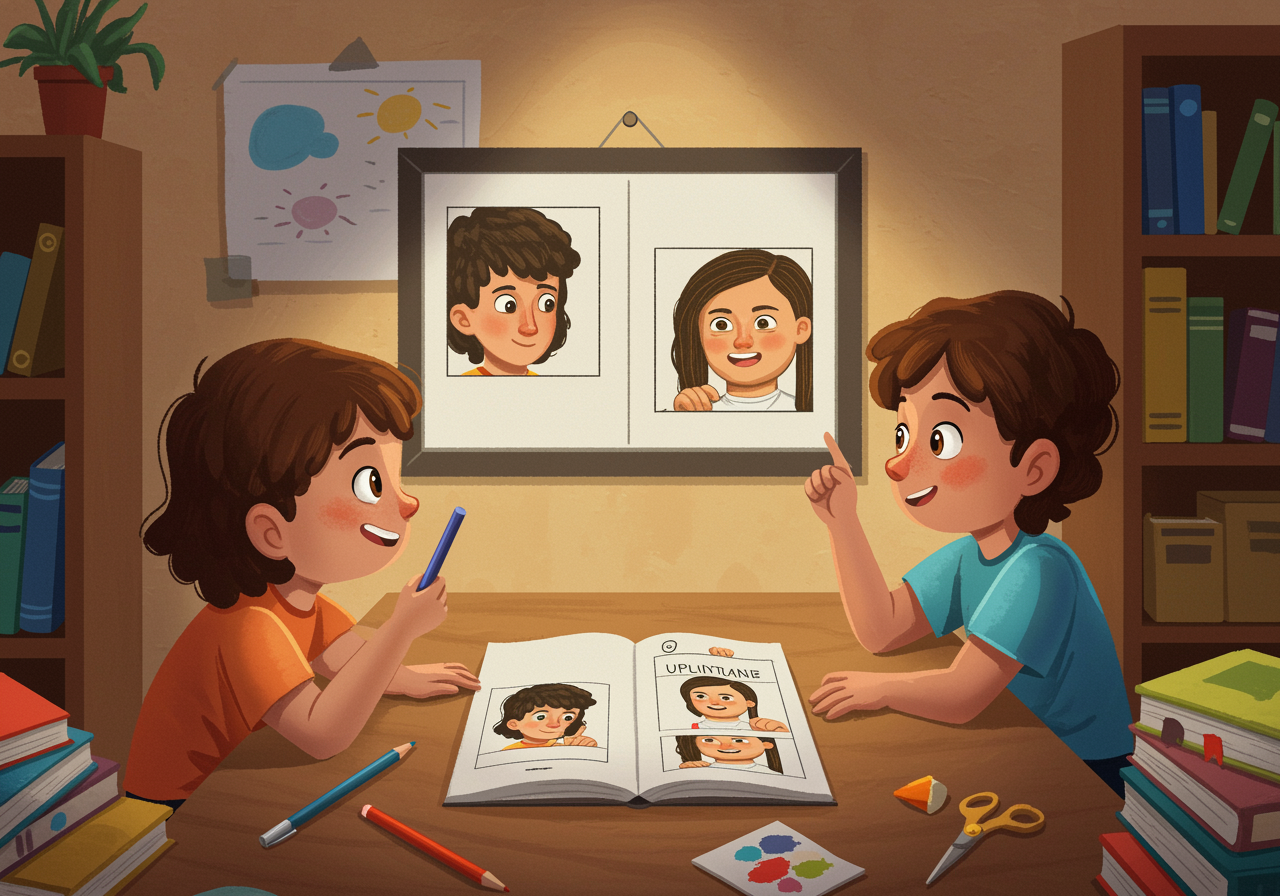The Great Fairness Debate: Why Some Kids Think Life is Fair (And Others Don’t)
Exploring how our experiences shape what we believe about justice and fairness
Dive into the fascinating world of how different kids can look at the same situation and see completely different levels of fairness.
Overview
Ever wonder why your kid thinks getting detention is totally unfair while their friend shrugs it off as 'just the way things are'? It turns out that whether children see the world as fair or unfair isn't random—it's shaped by their experiences, what they've been taught, and even how their brains process information. Some kids develop what scientists call a 'just-world belief'—thinking that good things happen to good people and bad things happen to bad people. Others learn early that life can be pretty random and unfair. Understanding these different viewpoints can help families have more empathetic conversations about justice, privilege, and how we all see the world differently.

Understand in 30 Seconds
Get up to speed quickly
- Experience Shapes Everything: Kids who've had mostly positive experiences often believe the world is fair, while those who've faced challenges early may see unfairness everywhere.
- It's Not Right or Wrong: Both viewpoints make sense based on what each child has lived through—neither perspective is 'correct' or 'incorrect.'
- Brains Work Differently: Some kids naturally look for patterns and reasons, while others are more comfortable with randomness and uncertainty.
- It Can Change Over Time: As kids grow and experience more of the world, their views on fairness often shift and become more complex.
Real Life Scenario
Situations you can relate to
Imagine two kids on the same soccer team. When their teammate gets benched for missing practice, Sam thinks 'That's totally fair—he broke the rules and got consequences.' But Maya thinks 'That's so unfair—maybe he had to help his family and couldn't come.' Same situation, totally different reactions! Sam might have grown up in a family where rules are clear and consequences are predictable. Maya might have experienced situations where good people face unfair challenges. Neither kid is wrong—they're just seeing through different 'fairness glasses' based on what life has taught them so far. Think about it: Have you ever disagreed with a friend about whether something was fair or unfair? What do you think shaped each of your views?

Role Play
Spark a conversation with “what if” scenarios
What if you could put on 'fairness glasses' that let you see situations from different perspectives?
- Role play: Take turns describing a recent 'unfair' situation, then try to come up with three different ways someone might view the same event as either fair or unfair.
What if you were a detective investigating why two witnesses saw the same event completely differently?
- Role play: Create a mock 'case' where something happened at school, and role-play interviewing different 'witnesses' who each have different backgrounds and experiences.
What if you could design a 'perfectly fair' world?
- Role play: Work together to create rules for a imaginary society, then discuss why different families might want different rules based on their experiences.
FAQs
Frequently asked questions people want to know
Is it bad if my child thinks the world is unfair?
Not at all! Recognizing unfairness can lead to empathy, social awareness, and motivation to make positive changes. It's actually pretty mature thinking.
What if my child seems too trusting that everything is fair?
This optimism is valuable too! Help them understand that while many things are fair, some aren't—and that's okay to acknowledge without becoming cynical.
How do I talk about privilege without making my child feel guilty?
Focus on gratitude and responsibility rather than guilt. Help them see their advantages as opportunities to understand and help others, not as something to feel bad about.
Examples in the Wild
See how this works day to day
- Research shows that children from higher-income families are more likely to believe in a 'just world' where hard work always pays off, while children facing economic challenges often recognize systemic unfairness earlier. (American Psychological Association, 2023)
- Studies find that children who experience early adversity develop more sophisticated understanding of unfairness and injustice by age 8-10. (Developmental Psychology Journal, 2022)
- Neuroscience research reveals that adolescent brains are still developing the ability to understand complex social situations, which affects how they perceive fairness. (Nature Neuroscience, 2023)
- Cross-cultural studies show that children's concepts of fairness vary significantly based on their community's values and economic systems. (Journal of Cross-Cultural Psychology, 2022)
In Summary
What you should know before you start
- Different life experiences create different 'fairness lenses' that kids use to view the world
- Both optimistic and realistic views of fairness have value and can coexist in healthy ways
- Understanding why people see fairness differently builds empathy and critical thinking skills
- These perspectives often evolve as children grow and encounter new experiences
Pro-tip for Parents
You got this!
When your child declares something 'totally unfair,' resist the urge to immediately agree or disagree. Instead, try asking 'What makes that feel unfair to you?' or 'Can you imagine why someone might see it differently?' This helps them think critically about their own perspective while validating their feelings. Remember, the goal isn't to convince them their view is right or wrong, but to help them understand that different viewpoints exist for good reasons.

Keep an Eye Out For
Find these examples in everyday life
- News stories about social justice issues that can spark conversations about different perspectives on fairness
- School situations where kids disagree about whether rules or consequences are fair
- Movies, books, or shows that present moral dilemmas where characters disagree about what's fair
Explore Beyond
Look up these related research topics
- How different cultures around the world define fairness and justice
- The psychology behind why people see the same situation differently
- How social movements throughout history have challenged ideas about what's fair